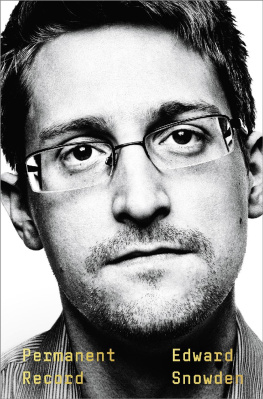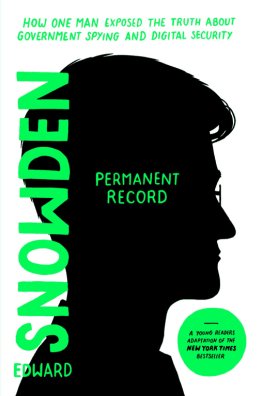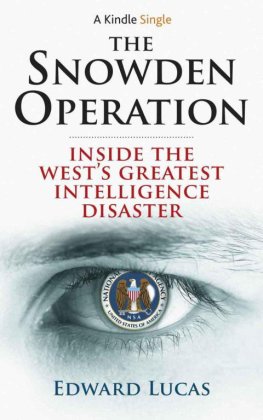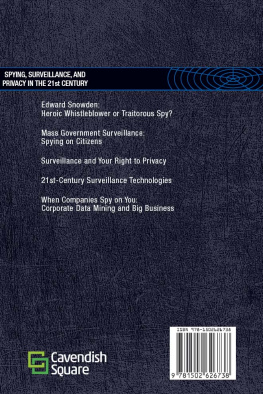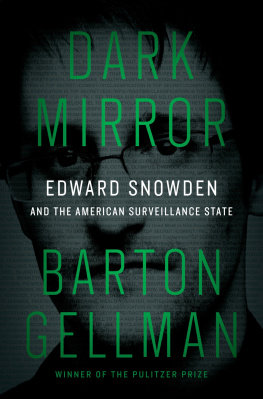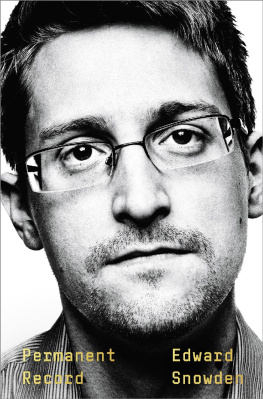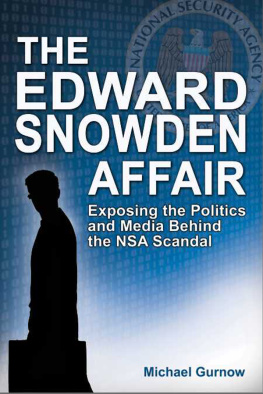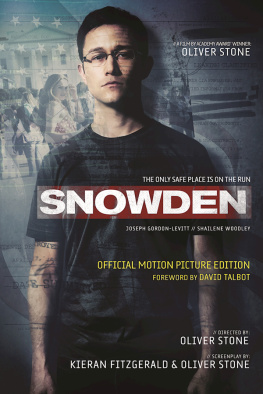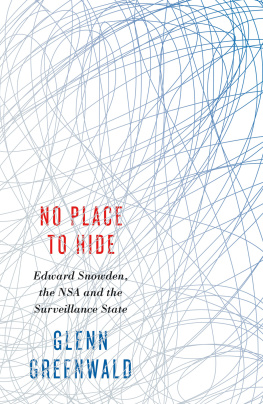Edward Snowden - Permanent Record (Young Readers Edition)
Here you can read online Edward Snowden - Permanent Record (Young Readers Edition) full text of the book (entire story) in english for free. Download pdf and epub, get meaning, cover and reviews about this ebook. year: 2021, publisher: Henry Holt and Co. (BYR), genre: Religion. Description of the work, (preface) as well as reviews are available. Best literature library LitArk.com created for fans of good reading and offers a wide selection of genres:
Romance novel
Science fiction
Adventure
Detective
Science
History
Home and family
Prose
Art
Politics
Computer
Non-fiction
Religion
Business
Children
Humor
Choose a favorite category and find really read worthwhile books. Enjoy immersion in the world of imagination, feel the emotions of the characters or learn something new for yourself, make an fascinating discovery.

- Book:Permanent Record (Young Readers Edition)
- Author:
- Publisher:Henry Holt and Co. (BYR)
- Genre:
- Year:2021
- Rating:5 / 5
- Favourites:Add to favourites
- Your mark:
- 100
- 1
- 2
- 3
- 4
- 5
Permanent Record (Young Readers Edition): summary, description and annotation
We offer to read an annotation, description, summary or preface (depends on what the author of the book "Permanent Record (Young Readers Edition)" wrote himself). If you haven't found the necessary information about the book — write in the comments, we will try to find it.
Permanent Record (Young Readers Edition) — read online for free the complete book (whole text) full work
Below is the text of the book, divided by pages. System saving the place of the last page read, allows you to conveniently read the book "Permanent Record (Young Readers Edition)" online for free, without having to search again every time where you left off. Put a bookmark, and you can go to the page where you finished reading at any time.
Font size:
Interval:
Bookmark:
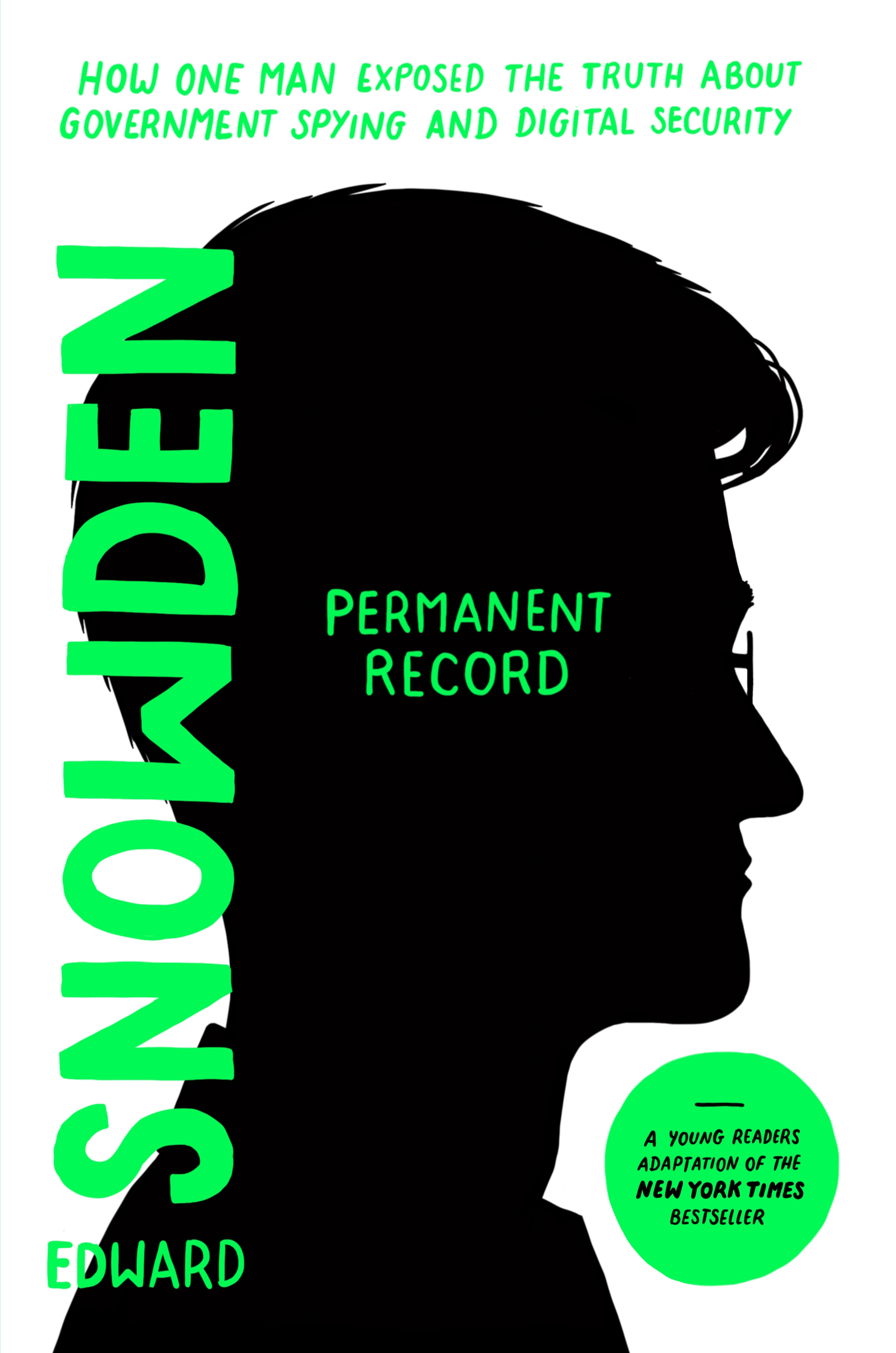


The author and publisher have provided this e-book to you for your personal use only. You may not make this e-book publicly available in any way. Copyright infringement is against the law. If you believe the copy of this e-book you are reading infringes on the authors copyright, please notify the publisher at: us.macmillanusa.com/piracy.
To L
The Fourth Amendment to the US Constitution protects people and their property from government scrutiny. It states: The right of the people to be secure in their persons, houses, papers, and effects, against unreasonable searches and seizures, shall not be violated, and no Warrants shall issue, but upon probable cause, supported by Oath or affirmation, and particularly describing the place to be searched, and the persons or things to be seized.
Translation: If officers of the law want to go rooting through your life, they first have to go before a judge and explain why. They have to establish that they have reason to believe that you might have committed a specific crime, or that they believe specific evidence of a specific crime might be found on or in a specific part of your property. They have to swear that this reason has been given honestly and in good faith.
Only if the judge approves a warrant will they be allowed to go searchingand even then, only for a limited time.
The Constitution was written in the eighteenth century, back before computers were invented. It stands to reason that computer files, whatever their contents, are our version of the Constitutions papers. Data, meanwhile, is our version of effects, a catchall term for all the stuff that we own, produce, sell, and buy online.
In the centuries since the original Constitution Day, our clouds, computers, and phones have become our homes, just as personal and intimate as our actual houses nowadays. If you dont agree, then answer me this: Would you rather let your friends hang out in your bedroom alone for an hour, or let them spend even just ten minutes alone with your unlocked phone?
My name is Edward Joseph Snowden. I used to work for the United States government, but now I work for you, the public. It took me nearly three decades to recognize that there was a distinction. I spend my time trying to protect the public from the person I used to bea spy for the Central Intelligence Agency (CIA) and National Security Agency (NSA).
The reason youre reading this book is that I did a dangerous thing for a man in my position: I decided to tell the truth about my countrys secret regime of mass surveillance. A system of near-universal surveillance had been set up not just without the American publics consent, but in a way that deliberately hid every aspect of its programs from our knowledge. In other words, the government sworn to protect its citizens was also spying on them.
When the program was first createdwhen I helped build itI didnt realize that engineering a system that would keep a permanent record of everyones life would turn out to be a tragic mistake. But over time, I came to understand that American citizens were being surveilled in a way that went against not just the Constitution of the United States, but the basic values of any free society. The public had never been granted a chance to voice our opinion about this surveillance.
I love my country, and I believe in public servicemy whole family, my whole family line for centuries, is filled with men and women who have spent their lives serving this country and its citizens. I had sworn an oath of service to the public, in support and defense of the Constitution, whose guarantee of civil liberties had been blatantly violated. I realized that coming forward and disclosing the extent of my countrys abuses was critical. I therefore decided to become whats known as a whistleblower.
In 2013, I collected internal Intelligence Community documents that gave evidence of the US governments lawbreaking and turned them over to journalists, who vetted and published them. In doing so, I knew I couldand wouldbe charged with crimes by the US government under the Espionage Act. The penalty for disclosing top secret documents, whether to foreign spies or domestic journalists, is up to ten years imprisonment per document. As a result, I have lived in exile in Moscow, Russia, a country I did not choose, for more than seven years.
This book is about what led up to that decision, the moral and ethical principles that informed it, and the impact that mass surveillance and data collection continues to have on all of us.
Its also about my life.
The first thing I ever hacked was bedtime.
When I was young, it always felt unfair that my parents forced me to go to sleep before they or my sister did. I wasnt even tired. Lifes first little injustice.
Many nights of the first several years of my life ended in civil disobedience: crying, begging, bargaining. Until the night I turned six and discovered direct action.
I had just had one of the best days of my life, complete with friends, a party, and gifts, and I wasnt about to let it end. So I went about covertly resetting all the clocks in the house by several hours, trying to trick my parents into thinking it was earlier in the evening.
When the authoritiesmy parentsfailed to notice, I was mad with power, galloping laps around the living room. I, the master of time, would never again be sent to bed. I was free.
I fell asleep on the floor, having finally seen the sunset on June 21, the summer solstice, the longest day of the year. But when I awoke, the clocks in the house once again matched my fathers watch.
If youre like most people these days, you set your watch, if you wear one, to the time on your smartphone. But if you look at your phone, and I mean really look at it, burrowing deep through its menus into its settings, youll eventually see that the phones time is automatically set. Every so often, your phone quietlysilentlyasks your service providers network, Hey, do you have the time? That network, in turn, asks a bigger network, which asks an even bigger network, and so on through a great succession of towers and wires until the request reaches one of the true masters of time, a network time server run by the atomic clocks kept at places like the National Institute of Standards and Technology in the United States, the Federal Office of Meteorology and Climatology in Switzerland, and the National Institute of Information and Communications Technology in Japan. That long invisible journey, accomplished in a fraction of a second, is why you dont see a blinking 12:00 on your phones screen every time you power it up again after its battery runs out.
I was born in 1983, at the end of the era in which people set the time for themselves. That was the year that the US Department of Defense created a computer network for the public called the internet. This virtual space gave rise to the Domain Name System that we still use todaythe .govs, .mils, .edus, and, of course, .coms. And yet it would be another six years before the World Wide Web was invented, and about nine years before my family got a computer with a modem that could connect to it.
Font size:
Interval:
Bookmark:
Similar books «Permanent Record (Young Readers Edition)»
Look at similar books to Permanent Record (Young Readers Edition). We have selected literature similar in name and meaning in the hope of providing readers with more options to find new, interesting, not yet read works.
Discussion, reviews of the book Permanent Record (Young Readers Edition) and just readers' own opinions. Leave your comments, write what you think about the work, its meaning or the main characters. Specify what exactly you liked and what you didn't like, and why you think so.

